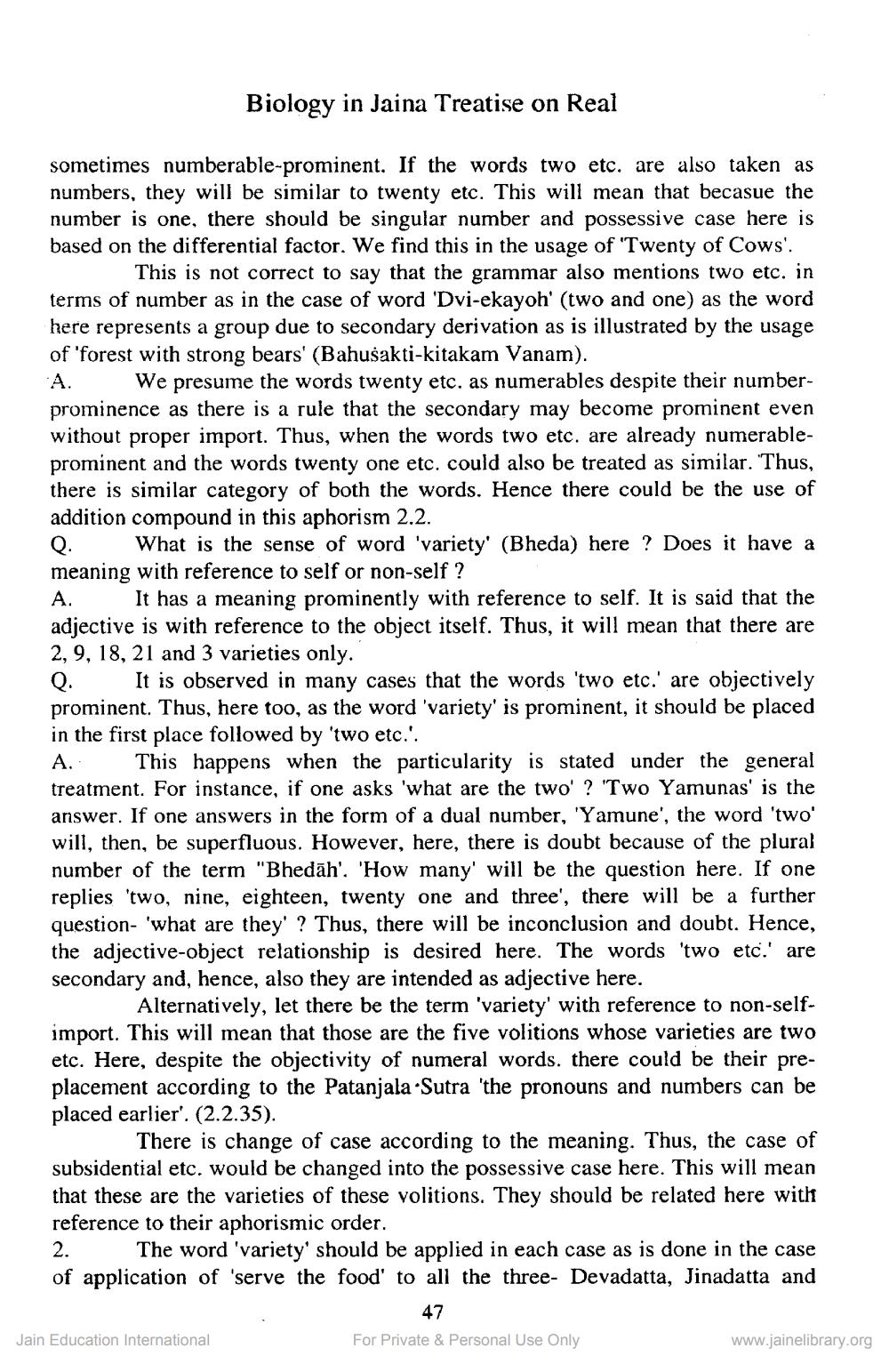________________
Biology in Jaina Treatise on Real
A
sometimes numberable-prominent. If the words two etc. are also taken as numbers, they will be similar to twenty etc. This will mean that becasue the number is one, there should be singular number and possessive case here is based on the differential factor. We find this in the usage of 'Twenty of Cows'.
This is not correct to say that the grammar also mentions two etc. in terms of number as in the case of word 'Dvi-ekayoh' (two and one) as the word here represents a group due to secondary derivation as is illustrated by the usage of 'forest with strong bears' (Bahusakti-kitakam Vanam). A. We presume the words twenty etc. as numerables despite their numberprominence as there is a rule that the secondary may become prominent even without proper import. Thus, when the words two etc. are already numerableprominent and the words twenty one etc. could also be treated as similar. Thus, there is similar category of both the words. Hence there could be the use of addition compound in this aphorism 2.2. Q. What is the sense of word 'variety' (Bheda) here ? Does it have a meaning with reference to self or non-self?
It has a meaning prominently with reference to self. It is said that the adjective is with reference to the object itself. Thus, it will mean that there are 2, 9, 18, 21 and 3 varieties only. Q. It is observed in many cases that the words 'two etc. are objectively prominent. Thus, here too, as the word 'variety' is prominent, it should be placed in the first place followed by two etc.'. A. This happens when the particularity is stated under the general treatment. For instance, if one asks 'what are the two' ? 'Two Yamunas' is the answer. If one answers in the form of a dual number, 'Yamune', the word 'two' will, then, be superfluous. However, here, there is doubt because of the plural number of the term "Bhedāh'. 'How many' will be the question here. If one replies two, nine, eighteen, twenty one and three', there will be a further question- 'what are they'? Thus, there will be inconclusion and doubt. Hence, the adjective-object relationship is desired here. The words 'two etc.' are secondary and, hence, also they are intended as adjective here.
Alternatively, let there be the term 'variety' with reference to non-selfimport. This will mean that those are the five volitions whose varieties are two etc. Here, despite the objectivity of numeral words. there could be their preplacement according to the Patanjala Sutra 'the pronouns and numbers can be placed earlier'. (2.2.35).
There is change of case according to the meaning. Thus, the case of subsidential etc. would be changed into the possessive case here. This will mean that these are the varieties of these volitions. They should be related here with reference to their aphorismic order. 2. The word 'variety should be applied in each case as is done in the case of application of 'serve the food' to all the three- Devadatta, Jinadatta and
47 Jain Education International For Private & Personal Use Only
www.jainelibrary.org




